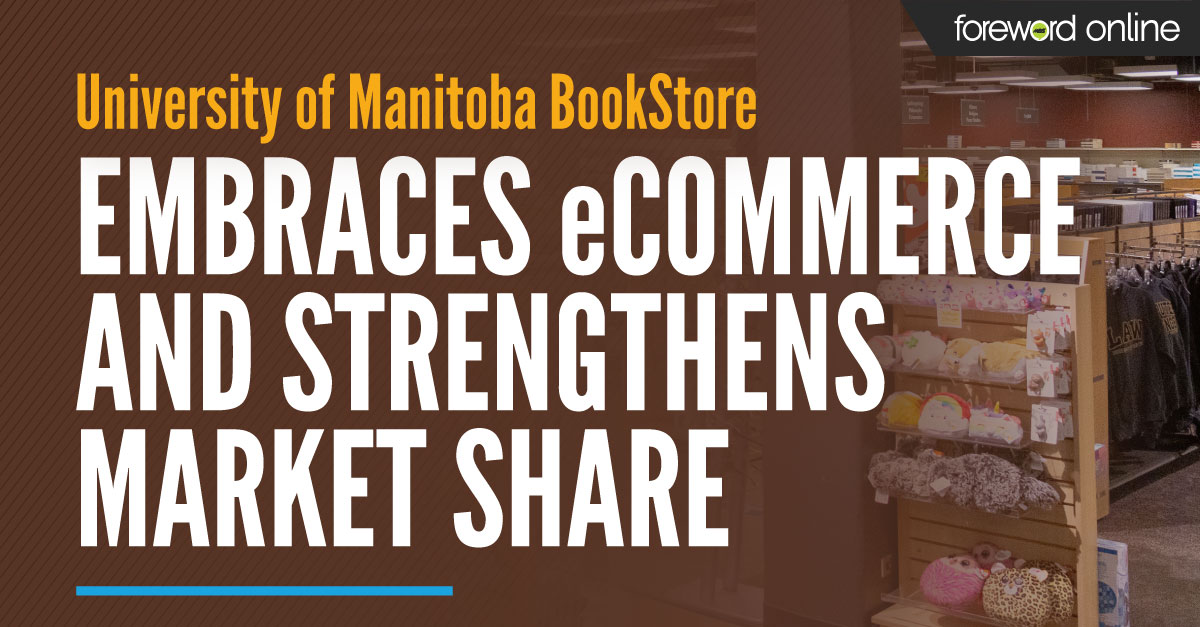Before 2020, online sales were not a big part of the University of Manitoba (UM) BookStore’s revenue. The brick-and-mortar store served its campus while few students chose to shop online. However, after 2020, all of that changed. In order to continue to serve the school’s community, a robust online presence was essential. 
“MBS inSite was absolutely critical for us through the pandemic and still to this day. Prior to the pandemic, we were using inSite, but it was really a very small portion of our retail operation. The pandemic changed all of that, as I think it probably did for a lot of campus retailers,” Craig Bauer, Course Materials Manager, UM BookStore, said. “Now, our eCommerce site remains a really important part of our retail operations because it allows us to serve students outside of store hours — particularly when they're buying digital products. Students don’t have to shop in person which adds a lot of convenience.”
Benefits of online retail
The MBS system offers college stores an integrated collegiate retail management system complete with the back-office functionality stores need, point-of-sale hardware and software, and flexible, easy-to-manage eCommerce. This complete solution has helped the UM Bookstore streamline store processes and evolve with a changing market.
“The online bookstore is open 24/7. Students can buy our products whenever they wish. We can ship items to them or offer them in-store pickup — another service we started during the pandemic and have continued to maintain as a convenience for some students,” Bauer said. “It also serves those students learning primarily through our distance education program. It has become a really important part of our operation. Without a doubt, inSite has increased our market share.”
To maintain an engaging website that draws customers back, UM BookStore has worked directly with MBS Store Technology Solutions to keep the site’s branding and images current, taking in valuable customer feedback. Additionally, they are always working on new opportunities to promote the online store.
“The MBS inSite team, over the time that we've been using it, has provided valuable technical support for the eCommerce site, and they've also supported our branding efforts. They have helped us update our branding and imaging to best reflect our campus and community. That's been really important in establishing and improving our online presence,” Bauer said. “inSite now forms the core of our online presence. We were able to successfully continue operations through the pandemic which had a spinoff effect. Our customer base became increasingly interested in our online presence. Customers go to our web page more frequently which has, in turn, increased the feedback we receive because we are engaging more people online. As a result, we now invest more in our online promotional efforts. We've taken the time to improve the quality of our images as well as our web catalog product descriptions.”
Strengthening UM BookStore’s market share
Building the store’s eCommerce presence has had an impact on how the store serves students and expands its customer base. By taking a more active online presence, the store has continued to evolve and identify new opportunities to increase traffic and grow.
“We’ve become more focused with our social media marketing as well. Leveraging MBS inSite in response to the pandemic helped our store evolve and become a lot more focused with our online presence — not just our brick-and-mortar presence,” Bauer said. “We actively promote the products that the students want to buy like our branded clothing and accessories, such as backpacks, ball caps and our giftware. We try to attract students into the store by promoting the products we think they will be excited about purchasing.”
The store also provides outstanding service to faculty members. Working directly with faculty on course material adoptions and communicating about course material formats has helped minimize adoption errors.
“We focus on strong, meaningful communication with our academic departments across our campuses. It's really important to prevent that disintermediation. Strong relationships with faculty members and instructors help us discourage them from sending students to publishers’ direct sales channels,” Bauer said. “When we think about our communication with academic departments, it is about more than soliciting course material adoption submissions. We work with faculty to help find the product configurations that best meet their needs. That's particularly the case if a title has a courseware option tied to it. They might not be aware of the variety of configurations that a publisher has available for a given title. We, as a store, have had to assume a lot of that educational role for these products.
“We emphasize to our staff not to take a course material submission at face value. A lot of times an instructor may think ‘I want to use the text plus the accompanying courseware,’ but if they happen to have a print copy of the text, they might just flip the book over to look at the ISBN. When they submit that ISBN, they don’t realize they are adopting a standalone print copy and not the bundle that includes the courseware,” Bauer said. “So, we don't take that information we get at face value especially when there are a variety of configurations possible. We take a proactive approach, communicating with the academic to get a confirmation on the materials they intended to adopt. Ultimately, what we're trying to do is add value to the course material adoption experience and making sure the bookstore has their course materials accurately listed and in stock.”
Going beyond providing exceptional service to just individuals, the store also works hand-in-hand with the campus IT department to serve as the school’s designated computer hardware solution.
“Our computer products department works with our Information Services and Technology department as the designated computer hardware solution sales channel for the University of Manitoba. If somebody needs a computer system, whether it's a laptop, tablet, desktop or peripherals, we acquire those products that the campus needs. We serve the entire institution, including departments that spend university budget money to acquire those products,” Bauer said. “The Information Services and Technology department is responsible for the software side. Typically, the software is deployed with hardware goods and peripherals, so we work together with product suppliers to come up with configurations that are going to meet the institution’s needs that the IT department can effectively set up and maintain. It’s an important way to keep or at least maintain market share here on campus.”





